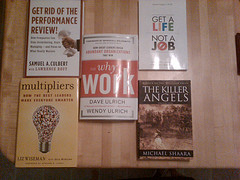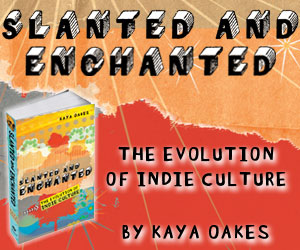'If you double-cross me, I will destroy you'
Remember Atlas Shrugged?
It is Ayn Rand's 1957 novel about capitalism, her theory of objectivism, and the role of the innovator in business and society. For a novel published over 50 years ago, it remains a consistent seller, still appearing in the Top 50 of Amazon.com sales rankings at times as recently as 2009.
'Shrugged' enjoys enduring popularity with college students, I think I read the book in college myself, and for many young readers it provides their first (made up) look behind the scenes of big business, government regulation, money and societal pressures, and the role of the innovator.
Whether or not you believe in Atlas Shrugged's Objectivist positions and Rand's political views is entirely up to you, and I don't really recall enough about the ridiculously long book (almost 1400 pages) to have much of a take, other than to observe that world of high stakes big-business, ultra-rich society, and global corporate domination that the book focuses on come off as WAY more exciting that what most of us do on a day-to-day basis.
And now in a move that is likely simultaneously absurd, and the smartest thing ever, a movie adaptation, 'Atlas Shrugged Part I', is slated for an April 2011 release. As a novel, the artistic achievement of Atlas Shrugged is certainly debatable, but as a movie, if the trailer (embedded below, RSS and email subscribers click through), is any indication, 'Shrugged' is going to be an instant classic.
We love sci-fi and action adventure movies because for a couple of hours we suspend our disbelief and imagine ourselves battling super-villains, having insane car chases in crowded cities, and blowing up stuff, (while accompanied by Angelina Jolie or Brad Pitt). But obviously those are all fantasies that can never come true. Great fun for two hours, but then it's back to the minivan for the ride home.
But in the fake business world of Atlas Shrugged, rendered hilariously well in the trailer, we could sort of realistically see ourselves as global capitalist titans - wearing custom-made $4,000 suits, drinking 20-year old whisky served from crystal decanters, and putting our business adversaries in their place with jabs like 'If you double-cross me, I will destroy you'.
Don't lie - you know you have wanted to use a line like that in your last budget meeting.
What do you think, will you see 'Atlas Shrugged' when it comes out?
Have a great weekend!

 Steve
Steve



